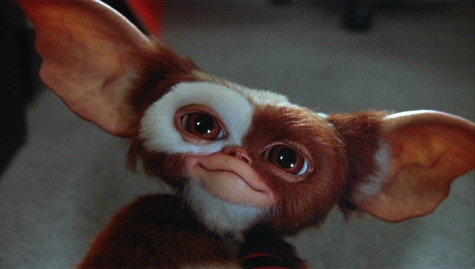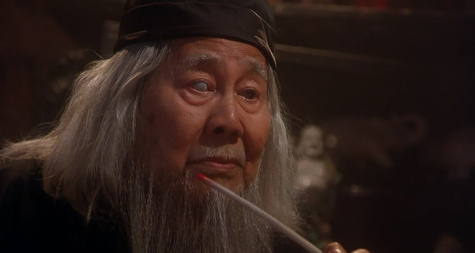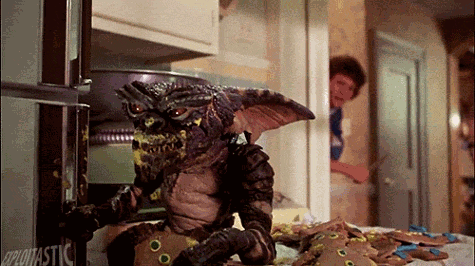
Each year there's some new, hot thing every kid wants and every parent is desperate to get. Cabbage Patch Dolls. Tickle Me Elmo. This year, it's some bizarre Tamagotchi/Furby hybrid called Hatchimals.
Such toys may be outrageously over-priced and hard to find, but at least they're inanimate. If the kids fall out of love with them midway through January, the worst thing that happens is some grumbling about money swirling down the drain and just one more toy to clutter up the house.
What about all of the cute puppies and kittens and hamsters purchased every year for Christmas morning? The sweet little pets that might not stay little for long or require more upkeep than anticipated? The animals that end up buried in shoeboxes when Little Timmy forgets to feed them for a straight week, abandoned by the side of the road, or dumped at the pound when the novelty wears off?
So many people make the mistake of looking at pets as toys instead of breathing creatures that are hardly disposable—and if there was ever a film that warned against such a mentality, it's Gremlins.
Seriously? you may think. Gremlins? That ridiculous puppet movie where Phoebe Cates unexpectedly starts taking about how her dad died while stuck in a chimney dressed as Santa Claus?
Yes, really: Gremlins may be a weird little cult classic that straddles the line between fun family holiday flick and creature feature horror movie, but it's also a cautionary tale about giving animals as gifts.
When Rand Peltzer (Hoyt Axton) comes across the magical creature known as the Mogwai in a strange Chinese shop, he insists on buying it. “I got to have him. He's incredible. It's a present for my son for Chistmas—it's exactly what I've been looking for.”
Mr. Wing (Keye Luke) refuses. “With Mogwai comes much responsibility. I cannot sell him at any price.”

Of course, enough money typically trumps morality, and Wing's grandson sneakily sells the Mogwai to Peltzer. He doesn't really tell him how to care for the creature; he only gives him three rules to follow:
- Keep him out of the light. Direct sunlight will kill him.
- Never get him wet.
- And never, ever—not under any circumstances—feed him after midnight.
Peltzer scampers off with his new purchase without even asking if it eats meat, veggies, or the souls of small children—or what will happen if he breaks rules #2 and #3. All he knows is that it's a new, strange thing that'll entertain his son.
Oh, and that it sings sometimes. He's hardly a careful shopper or responsible pet owner.
Teenaged son Billy (Zach Galligan) is pretty thrilled with his new pet, which he names Gizmo, but is as lackadaisical with its care and keeping as his father. It's not long before he's broken the ironclad rules, resulting in poor Gizmo giving “birth” to a slew of new Mogwai, who become slimy, scaly, evil green monsters that wreak deadly havoc across town.
For a goofy hour-and-a-half movie from the 80's, Gremlins raises an awful lot of questions. For starters: son Billy is a teenager who's clearly more interested in cars and girls than a new pet—and already has a dog, anyway. Why was dad Rand so determined to get him this odd creature he just happened upon in Chinatown?
For all anyone knew, Mogwai could have had poisonous teeth or claws; why no damn questions about whether the adorable fuzzball was safe to keep as a pet? And, again, why not ask what the animal eats—or what happens when the rules are broken—before buying it?

Maybe I'm asking for too much logic from a Spielberg/Dante/Columbus fantasy, but this is basic stuff, guys. Even as a kid enamored with how cute Gizmo was, I still thought the Dad was off his rocker (and that Billy was a crappy pet owner).
There are some obvious real-world parallels at play here. Gizmo is a dangerous exotic animal that should never have been made a pet, much like the slow loris of viral video fame. (If you think those videos are just too cute, Google to learn the ugly truth behind them.)
Introducing a non-native creature to a world it's ill-suited to usually leads to destruction and chaos, albeit in a exaggerated way in this Hollywood tale. Think of how many stories you've read where people dumped baby pythons or gators, only for the fully-grown adults to cause major problems in the neighborhood years later.
Even less exotic animals can prove problematic to the ecosystem when people decide they don't want to take care of Fluffy and Spot any more. Feral cat populations have led to species extinction across the world, and feral dogs prove dangerous to innocent bystanders and their pets all the time.
When Spike and the other evil Gremlins fan out across town, killing folks and incurring massive property damage, it all smacks of inevitability given the Peltzers' negligent and blasé attitude towards their new pet. Too bad they didn't listen to Mr. Wing's warning that “Mogwai comes with much responsibility.”
It's fitting that the Peltzers are white suburbanites—the exotic animal trade thrives largely thanks to white folks willing to spend “whatever it takes” (as Rand puts it to Mr. Wing) to obtain the latest trendy pet.
There's even a touch of cultural appropriation here. It's heavily implied in the opening of the story that Mogwai are mystical Chinese creatures: Mr. Wing clearly understands the animal and knows how to properly care for it. Once the white protagonists have removed the creature from its home—wanting to enjoy it for its outward cuteness without fully understanding or respecting what a Mogwai is or knowing what it can do—mistakes and problems are inevitable.
Am I reading way too much into a schlocky Christmas film starring animatronic puppets? Perhaps. Did Joe Dante, Chris Columbus, or Steven Spielberg intend for these messages to underlie the plot? Almost certainly not.
“The death of the author” means the audience can interpret the finished product however they choose, though, and none of this is a real stretch when you watch the movie. It's not as if you have to squint to see that one of the main threads in the plot is “some animals should NOT be treated like pets.”
Every holiday season, the ASPCA and similar groups run dozens of PSA's advising people to not frivolously purchases pets as gifts; instead, they could just air this movie on repeat. An animal is much more than something that can be put in a box, unwrapped, and cast aside when it's no longer “entertaining”—an idea Rand Peltzer should have kept in mind before he handed over $200 for a singing magical creature.
Angie Barry wrote her thesis on the socio-political commentary in zombie films. Meeting George Romero is high on her bucket list, and she has spent hours putting together her zombie apocalypse survival plan. She also writes horror and fantasy in her spare time, and watches far too much Doctor Who. Come find the angie bee at Tumblr.
